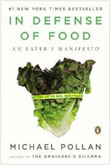Shared Agriculture: A Growing Notion
Brandon Sun, June 3, 2007 - David McConkey
Apples, beets, carrots . . . radishes, squash, tomatoes . .
. zucchini. This is an alphabet sampling of the delicious and
nutritious fruits and vegetables that are available to the Community
Shared Agriculture participants in Brandon.
Community Shared Agriculture – or CSA – is similar
to a farmers’ market, except that consumers pay for a share
of the farmer’s production in advance. A box of produce is
then picked up every week during the season – from early July
until late September.
(The concept is also known as
Community Supported Agriculture - also CSA.)
Consumers share in the vagaries of the farming year.
“We grow a wide variety of vegetables,” says local
CSA producer Norah Tolmie, “but you never know what
you’re going to get.”
Last year’s dry hot summer, for example, was poor for peas
but excellent for winter squash.
Last year, my wife and I participated by buying a share of the
production of the local market gardens of Menno and Evelyn Isaac and
Linda Boys. We were very impressed with the freshness, variety, and
beautiful presentation of the produce every week.
The Isaacs have been doing CSA for more than ten years. Menno says they
have found it “very enjoyable,” adding that they
get to know their customers even more than at the farmers’
market, which they also do.
“It has been a real pleasure to sell to people who are so
appreciative,” Menno says.
CSA is so much more than a commercial exchange. It is a way to bring
the farm and city closer together, and nurture a sustainable
– and friendly – agriculture. Producers are fairly
rewarded and food is produced according to organic principles.
CSA is a refreshing learning experience. Consumers get to know the
producers personally. City customers are invited to visit and even help
out at their local farm. Recipes and ideas are shared.
Menno Isaac, for example, grows a total of 15 varieties of potatoes,
and last year included six of them with his CSA produce.
The Isaacs have also opened up their farm to participants in the
“World Wide Opportunities on Organic Farms.” This
international organization provides a chance for people to learn about
organic farming by actually doing it. At their Brandon-area farm, the
Isaacs have hosted people from Japan, Korea, France, Germany, the
United Kingdom, and elsewhere.
Last summer, young Manitoba interns Sheri Blaylock and Kent Pongoski
worked at the Isaac’s. Blaylock found the experience
“absolutely educational in every way.” She hopes to
set up an organic farm in the near future, and would like to see other
young people get involved and realize that a small organic farm can be
a way of making a living in Manitoba.
“I’m looking at it as a career, and a
lifestyle,” she says.
I think that Blaylock is onto something here. The trend is towards not
only organic food, but also local food - like the “100 Mile
Diet” concept.
More distant sources of food are encountering more customer scrutiny
and skepticism. (China is now a major provider of the organic-labeled
food in our supermarkets.)
I can see expanded opportunities for young people who want to get into
farming, as these organic vegetable farms need only be a few acres in
size. CSA – as well as farmers’ markets –
help to increase the agricultural understanding and potential of the
Westman region.
Brandon consumers who would like to participate in CSA this year can
contact local producer Aagaard Farms, operated by Jes Aagaard and Norah
Tolmie. (The Isaacs will not have a CSA component in their market
garden operation this year.)
A full share (three or four people) costs $300; a part share (one or
two people) is $200. The phone number of Aagaard Farms is 204-727-3788.
They can accommodate about 30 families. For the do-it-yourselfer, they
also offer a few garden plots for rent.
Community Shared Agriculture in Brandon is a wholesome enhancement to
the consumer’s supper table; as well as to the environment,
the economy, and the community.
See also:
Authors Offer Food for Thought
Popular Right Now:
- 15 Tips for Healthy Eating
- Quality of Life, Well-Being Research Something We Can Feel Good About
- Diets Don't Work, So What Does?
- Political Contributions: Top Ten Canadian Tax Tips
- Nestle Fitness 14 Day Weight Loss Program; What is Wrong Here?
- Charitable Donations: Top Ten Canadian Tax Tips
Must Read Books:
The 4-Hour Workweek:
Escape 9-5, Live Anywhere, and Join the New Rich

What You Don't Know About Religion (But Should)

In Defense of Food:
An Eater's Manifesto

The Life-Changing Magic of Tidying Up:
The Japanese Art of Decluttering and Organizing

Don't
Even Think About It:
Why Our Brains are Wired to Ignore Climate Change

Like This? Share It!
Press Ctrl + D to Bookmark!
